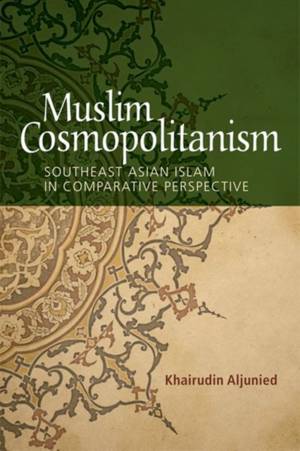
- Retrait gratuit dans votre magasin Club
- 7.000.000 titres dans notre catalogue
- Payer en toute sécurité
- Toujours un magasin près de chez vous
- Retrait gratuit dans votre magasin Club
- 7.000.000 titres dans notre catalogue
- Payer en toute sécurité
- Toujours un magasin près de chez vous
Muslim Cosmopolitanism
Southeast Asian Islam in Comparative Perspective
Khairudin AljuniedDescription
Cosmopolitan ideals and pluralist tendencies have been employed creatively and adapted carefully by Muslim individuals, societies and institutions in modern Southeast Asia to produce the necessary contexts for mutual tolerance and shared respect between and within different groups in society. Organised around six key themes that interweave the connected histories of three countries in Southeast Asia - Singapore, Malaysia and Indonesia - this book shows the ways in which historical actors have promoted better understanding between Muslims and non-Muslims in the region. Case studies from across these countries of the Malay world take in the rise of the network society in the region in the 1970s up until the early 21st century, providing a panoramic view of Muslim cosmopolitan practices, outlook and visions in the region.
Spécifications
Parties prenantes
- Auteur(s) :
- Editeur:
Contenu
- Nombre de pages :
- 240
- Langue:
- Anglais
Caractéristiques
- EAN:
- 9781474420464
- Date de parution :
- 30-10-17
- Format:
- Livre broché
- Format numérique:
- Trade paperback (VS)
- Dimensions :
- 155 mm x 231 mm
- Poids :
- 358 g







